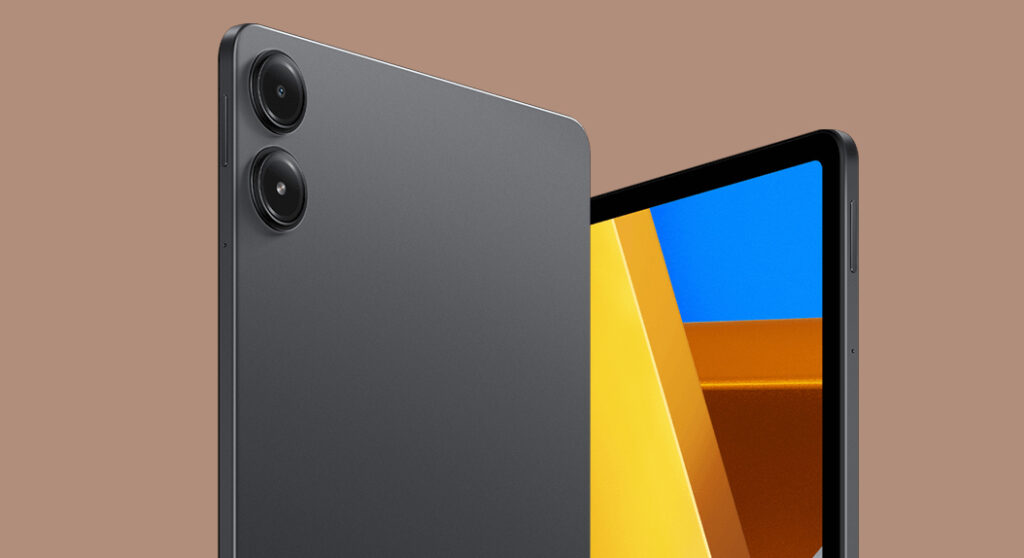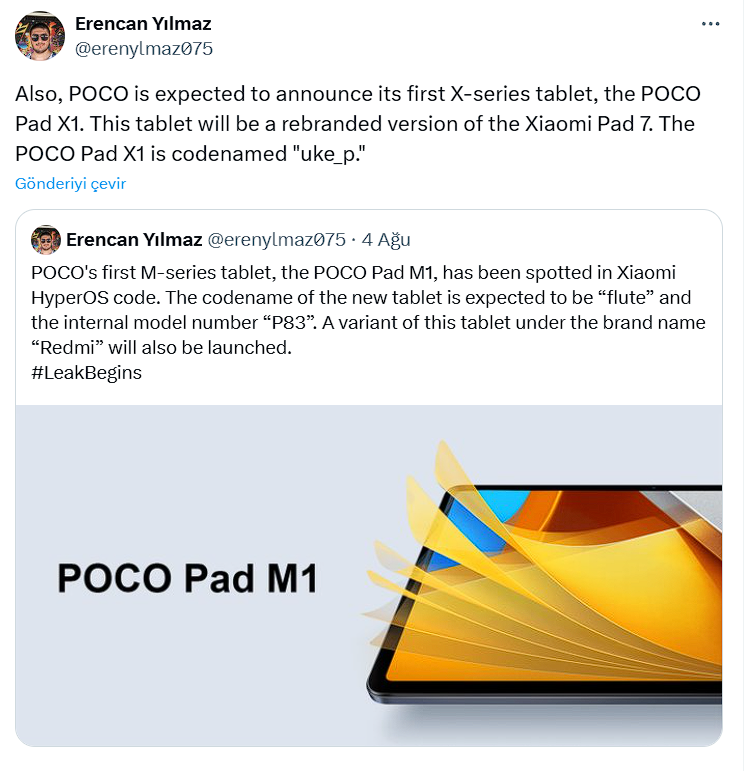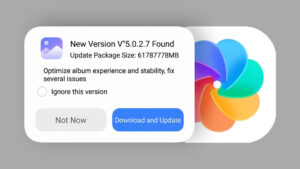POCO, already well-recognized for its achievements in the smartphone industry, is now making a calculated move into the tablet market. The company’s upcoming product expansion includes both the POCO Pad X series and POCO Pad M series tablets, specifically, the POCO Pad X1 and POCO Pad M1. These two models aren’t just about broadening the portfolio; they clearly target distinct market segments. The POCO Pad X1, notably, will inaugurate the POCO Pad X lineup, setting expectations for a top-tier offering.
POCO Pad X1
The POCO Pad X1 is positioned as the brand’s flagship tablet. Industry leaks indicate it’s essentially a rebranded version of the Xiaomi Pad 7 (codenamed “uke_p”), and it’s expected to run on the high-performance Snapdragon 7+ Gen 3 processor. This component selection directly appeals to users who demand strong performance for tasks like gaming, complex multitasking, and media production.
Given the foundation of the Xiaomi Pad 7, the POCO Pad X1 will likely offer competitive display technology and premium hardware, underscoring POCO’s intent to compete at the higher end of the tablet space.
POCO Pad M1
In parallel, the POCO Pad M1 is designed for broader market appeal. This model, the first in their M-series lineup, appears to be a rebadged Redmi Pad 2 Pro powered by the Snapdragon 7s Gen 3 chip, the same “P83” internal model number.
This processor is known for delivering solid efficiency and reliability, which positions the POCO Pad M1 as a cost-effective solution, suitable for everyday use, media consumption, light productivity, and e-reading, for example. POCO clearly wants the POCO Pad M1 to serve as an affordable yet capable alternative in a very competitive segment.
POCO’s dual-product tablet strategy reflects a methodical expansion that addresses key consumer expectations in performance and value. By differentiating the POCO Pad X1 and POCO Pad M1 based on their specifications and positioning, POCO stands to strengthen its foothold beyond smartphones. This launch isn’t just diversification for the sake of it, it’s a clear step towards establishing POCO as a versatile global tech player, actively shaping the tablet market’s competitive landscape.
Source: Erencan


 Erencan Yılmaz
Erencan Yılmaz


